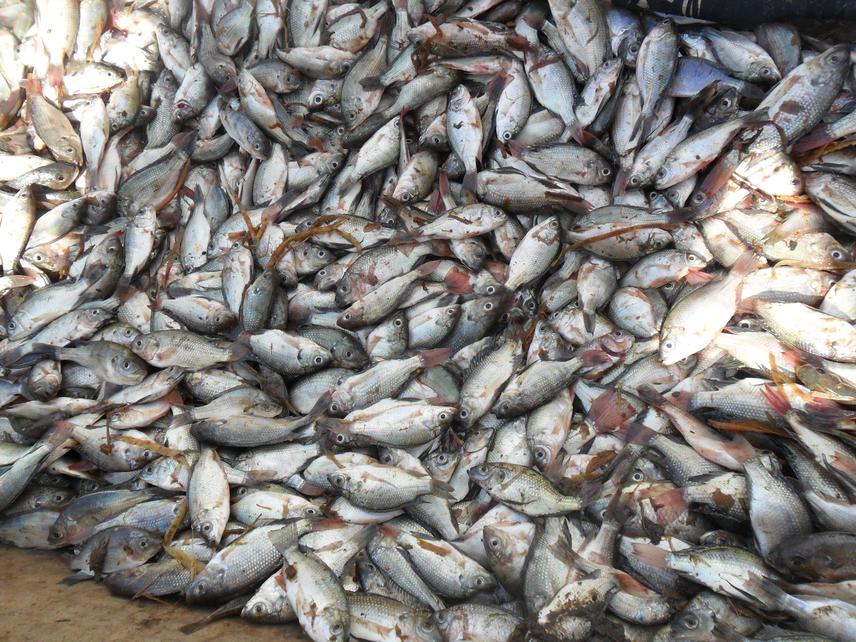Johnson Grayson Mshana
Other projects
10 Oct 2014
Conservation Awareness Campaign for the Protection of Critically Endangered Jipe Tilapia and its Habitat in Lake Jipe Tanzania
12 Apr 2016
Community Participation in the Conservation of Critically Endangered Jipe Tilapia Oreochromis jipe and Lake Jipe Ecosystem in Tanzania
8 Nov 2017
Helping Jipe Communities to Protect Critically Endangered Jipe Tilapia Oreochromis jipe and Ecosystem in Lake Jipe Tanzania
This project aims to raise community awareness in the conservation of Critically Endangered Jipe tilapia (Oreochromis jipe) and its habitat ecosystem through different conservation approaches such as awareness education, production of documentary film and involvement of environmental journalists.

Catch of Oreochromis jipe and Oreochromis esculentus caught using illegal fishing gear in lake Jipe early April 2013
Lake Jipe centres an ecosystem rich in biodiversity with endemic and fished species including Jipe tilapia (Oreochromis jipe), a mudfish (Clarias mozambicas), Oreochromis esculentus and sardine (Rastreneobola argentea). Fisheries activities in Lake Jipe form a major source of livelihood to the surrounding communities and beyond. However, several environmental problems caused by human or natural factors are threatening the lake ecosystem leading to the decline in catch and abundance of Jipe tilapia. The major problems that impact Lake Jipe and its fishery resources include overfishing, unsustainable fishing methods such as use of small mesh size and poison, siltation, habitat destruction and infestation by waterweeds. Following decline in catch and abundance, Jipe tilapia was listed as Critically Endangered species by IUCN (2006) which turned out as a challenge in the development of inland fisheries resources of Tanzania. Different conservation approaches including awareness education to primary school children, secondary school students, school teachers and parents will be used to ensure conservation of Critically Endangered Jipe tilapia and its habitat ecosystem. Other approaches include production of educational and promotional materials such as documentary film and involvement of environmental journalists in the conservation campaign.
Conservation awareness campaigns to the primary and secondary school students, and parents and formation of Eco-Clubs to secondary school students will contribute to the long term capacity building to the community in the conservation of the lake ecosystem. Awareness campaign to youth and local communities at large is essential to increase the appreciation of the relationship with, and dependency on, the natural resources, to bring changes in attitude and behaviour. Project documentaries will be made available to the local public television and radio channels hence project activities will be disseminated to a larger audience. Involvement of environmental journalists in the project will form a crucial way to make conservation efforts known to the rest of the country and the world.